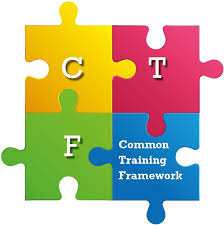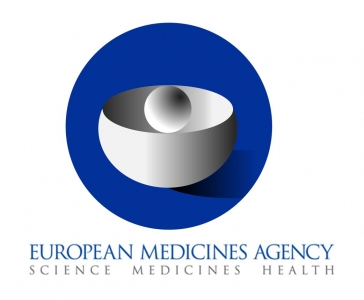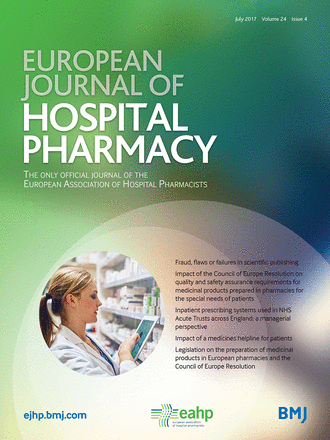EAHP EU Monitor - 7 July 2017
 The EAHP EU Monitor is a regular round up of news relevant to hospital pharmacy in Europe.
The EAHP EU Monitor is a regular round up of news relevant to hospital pharmacy in Europe.
You can subscribe to receive the EAHP EU Monitor by email HERE.

CTF – how the project is progressing
In 2014, the European Association of Hospital Pharmacists (EAHP) embarked on a journey towards the development of a Common Training Framework (CTF) for the hospital pharmacy specialisation. Its initiation was influenced on the one hand by the Pharmine project and on the other hand by the 2013 amendment of the Professional Qualification Directive which created the possibility to set up common training frameworks.
A common training framework should, pursuant to Article 49a of Directive 2005/36/EC (the Professional Qualification Directive), be based on a common set of knowledge, skills and competences necessary to pursue a profession. Qualifications obtained under such a framework could automatically be recognised by Member States that choose to voluntarily apply the framework. Professional associations, like EAHP, are entrusted by Article 49a of the Professional Qualifications Directive with the right to take the lead in developing such frameworks and to apply to the Commission for legal recognition. Enabled by this regulation EAHP set up three Working Groups which are led by a Steering Committee. The Association tasked them with the construction of a common training framework to advance labour mobility for hospital pharmacists and to set a European benchmark for the hospital pharmacist specialisation.
In the first stage of the CTF project, EAHP worked on securing voluntary agreement across countries about the knowledge, skills and attitudes/behaviours that underpin advanced practice in the hospital sector. Working Group 1 – led by Dr Andreia Bruno – developed a draft competency framework after examining the competencies required to deliver the vision of practice set out in the European Statements of Hospital Pharmacy. This draft framework was reviewed through a Delphi Consultation in which a diverse group of stakeholders consisting out of hospital pharmacists, other healthcare professionals, patients/ representatives of patient organisation and regulatory bodies participated. The results of this consultation are currently being analysed by Working Group 1. The input provided by the different stakeholders will be used to finalise the draft competency framework within 2017.
The second Working Group – chaired by EAHP Immediate Past-President Dr Roberto Frontini – conducted a research exercise in support of the project CTF. It analysed on the one hand literature on hospital pharmacy education and explored on the other hand the experience and attitudes of hospital pharmacists on labour mobility. The results of both the literature review and the labour mobility survey undertaken by Working Group 2 will be published in the next few months.
A series of communication tasks was carried out by Working Group 3 which is led by EAHP President Joan Peppard. The group ensured a clear understanding of the project amongst the EAHP membership, wider hospital pharmacy profession and liaised with the European Commission and other professions developing common training framework approaches. Working Group 3 will continue its activities in accordance with a new communication plan to ensure a clear understanding in the wider pharmacy profession including academia and regulators.
Once the draft competency framework is finalised, the CTF Working Groups will start preparing the next phase on the journey towards CTF realisation.
More information and regular updates on CTF can be found HERE

Responses to consultation on experiences with the Paediatric Regulation released
Ahead of the 2017 Report on the Paediatric Regulation, the European Commission published the responses to the targeted stakeholder consultation on the experiences acquired with the Paediatric Regulation.
Regulation No 1901/2006 on medicinal products for paediatric use (the Paediatric Regulation) set up a system of requirements, rewards and incentives together with horizontal measures to ensure that medicines are researched, developed and authorised to meet the therapeutic needs of children. It mainly aims at ensuring high-quality research into the development of medicines for children, that the majority of medicines used by children are specifically authorised for such use as well as the availability of high-quality information about medicines used by children. Its text contains an obligation for the European Commission to present reports in 2013 and 2017 to the European Parliament and the Council.
The stakeholder consultation – which was launched in November 2016 – aimed at supporting the European Commission in drafting the 2017 Report on the Paediatric Regulation. To this end, the European Commission included several statements reflecting on possible lessons learnt from the application of the Paediatric Regulation in the consultation. These statements built on the 10-year report to the European Commission prepared by the European Medicines Agency and its Paediatric Committee, an external study on the Regulation's economic impact, the experience of the European Commission's departments and reflections on the Paediatric Regulation published in the literature and discussed at stakeholder conferences.
75 stakeholders representing pharmaceutical undertakings, patient organisations, NGOs, as well as public institutions including regulatory agencies and national ministries participated in the consultation. Their responses will now be carefully analysed by the European Commission and considered for the 2017 Report on the Paediatric Regulation. This report will assess the Paediatric Regulation's impact on public health and businesses in order to inform EU decision-makers about the experience with the Regulation since its adoption in 2006. EAHP is among the stakeholders that submitted a response to the consultation.
Individual responses are available HERE
A summary of the responses is available HERE

Medicines Access @ Point of Care launched
Medicine Access @ Point of Care (MA @ POC) is an international, open access, multi-disciplinary, peer-reviewed publication targeted mainly to hospital pharmacists, hospital specialists, decision makers and payers dealing with access to medicine in the broadest sense. Due to the high and even increasing global unmet need for access to medicines, the journal will focus on topics dealing with access to medicines in a broad sense including regulatory compliance and counterfeit medicines.
The first issue of MA @ POC puts an emphasis on falsified medicines with three articles addressing this topic from different angles. What's in a word? Falsified/ counterfeit/ fake medicines – the definition debate by Mike Isles attempts to describe the evolution of the definitions falsified medicine, counterfeit medicine and fake medicine. Moreover, it brings forth the recommendation to form a consensus to describe such medicines that reach the public.
Fighting counterfeit medicines in Europe: the effect on access to medicines by Maarten Van Baelen, Pieter Dylst, Catarina Lopes Pereira, Johan Verhaeghe, Koen Nauwelaerts and Susie Lyddon puts the Falsified Medicines Directive into focus. It addresses the implementation of the Falsified Medicines Directive, and its Delegated Regulation by drawing attention to the benefits and downsides of the European Medicines Verification System. The article highlights not only the importance of the system for patient safety, but also raises the question if its implementation could pose a financial burden for manufacturers which in turn may threaten the availability of medicines.
The last article, Falsified Medicines Directive: are we heading in the right direction by EAHP Immediate Past-President Roberto Frontini has a critical look at the topic. It analysis concerns that have arisen from patients regarding the effectiveness of the unique identifier and the anti-tampering device in terms of safety. In addition, it puts into focus the problems that end users, such has hospitals and hospital pharmacies, who deal with high amounts of medicines are faced with. As a solution, the paper proposes the endorsement of more Good Procurement Practices and Good Distribution Practices by all pharmacies to prevent falsified medicines from entering into the market.
More information on MA @ POC HERE
 EMA and EUnetHTA present plan to align data requirements
EMA and EUnetHTA present plan to align data requirements
The European Medicines Agency (EMA) and the European Network for Health Technology Assessment (EUnetHTA) are stepping up their efforts to provide developers of medicines with simultaneous, coordinated advice on their development plans and facilitate alignment of data requirements. To this end EMA and EUnetHTA have developed a joint platform which will allow for consultation requests with the EMA and HTA bodies in EU Member States, in both pre- and post-marketing research, and will help align evidence requirements among regulators so that companies can generate and deliver a single set of data.
The platform will replace the current framework for seeking parallel scientific advice which required medicine developers to contact Member States' HTA bodies individually. In accordance with the new procedure, medicine developers will need to inform EMA and EUnetHTA simultaneously of their intention to request parallel advice. The involvement of individual HTA bodies will be coordinated by EUnetHTA after the submission of the request. The main benefits of this new platform will be:
- increased mutual understanding and problem solving ability through a more structured interaction between EMA and HTA bodies;
- improved coordination with, and greater participation of HTA bodies, as a result of the creation of an Early Dialogue Working Party and an Early Dialogue Secretariat at EUnetHTA; and
- streamlined logistics for the requesters.
These advantages are expected to lead to more robust outcomes resulting from the parallel consultation on evidence-generation plans for pharmaceuticals.
More information HERE

EJHP: July edition now published
July's edition of the European Journal of Hospital Pharmacy includes an editorial on fraud, flaws or failures in scientific publishing as well as original articles on: the impact of medicines helplines; legislation on the preparation of medicinal products in European pharmacies; and inpatient prescribing systems used in England. The edition also contains case reports on prolonged argatroban clearance in a critically ill patient with heparin-induced thrombocytopaenia and on oral etoposide in Merkel cell carcinoma.
More HERE
--------------------------------------------------------------

Consultations
EMA – Concept paper on a guideline on the evaluation of medicinal products indicated for treatment of influenza
EMA consults on a concept paper proposing the development of a guideline on the clinical evaluation of medicinal products indicated for the treatment of influenza for which there is no regulatory guidance currently available within the EU.
Deadline – 31st July 2017
More information HERE
EMA - Concept paper on the revision of the guideline on the role of pharmacokinetics in the development of medicinal products in the paediatric population
The guideline was issued in 2007. Over the last 10 years, the EMA Paediatric Committee has approved a large number of Paediatric Investigational Plans and an increasing number of applications for paediatric indications have been submitted to EMA and the national regulatory agencies. A revision to the guideline is therefore proposed to reflect the experience gained over the last decade and developments in science.
Deadline – 31st July 2017
More information HERE
EMA - concept paper on the need for the development of a reflection paper on regulatory requirements for the development of medicinal products for chronic non-infectious liver diseases (PBC, PSC, NASH)
Based on the need for further guidance, EMA would like to work on a reflection paper outlining requirements for the development of medicinal products for chronic non-infectious liver diseases. The consultation aims at determining the scope of this paper.
Deadline – 31st August
More information HERE
EMA - Clinical Data Publication Survey
The survey aims at collecting the views of the users of the clinical data website and gathering feedback on the usability of the website. The survey should take no more than 10 minutes to complete.
Deadline – 31st August
The survey is available HERE
European Commission - Stakeholder consultation for the evaluation of EU legislation on blood, tissues and cells
The purpose of this consultation is to support a comprehensive evaluation of the Union legislation on blood and tissues and cells - Directives 2002/98/EC and 2004/23/EC respectively and their implementing (technical) Directives, examining their functioning across the EU. In particular, the consultation aims to gather views on the extent to which the Directives have met their original objectives and whether they remain fit for purpose. The evaluation is expected to provide a sound evidence base which will be used to consider the need for any changes to the legislation.
Deadline – 31st August
More information HERE
![]()
Upcoming events
7th September – EPHA 8th Annual Conference: Make Health Your Business
Brussels, Belgium
Despite the existence of a strong evidence base for effective policy action on health promotion and disease prevention too little has been achieved. Policy-makers already know what needs to be done to overcome barriers to good health so the focus of this conference will be to explore how new levers and different levels of power can break through to real action on chronic diseases – by making health everyone's business.




